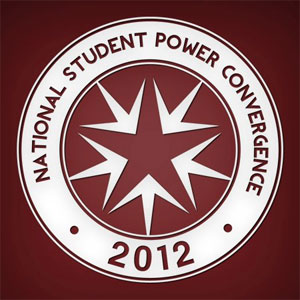VIDEO: "What is Student Power?" at NSPC'12

This is footage from the 2012 National Student Power Convergence, in Columbus, Ohio. I finally got around to offloading and editing it! Apologies for those I didn't get a chance to interview — our caravan had to leave the conference very unexpectedly earlier than we thought!
One of the things I found most interesting — and inspiring — about NSPC was that people's conception of what "student power" meant to them evolved over the course of several days, sometimes dramatically so. In general, people's politics often develop and evolve unevenly: sometimes gradually over years, sometimes leaps and bounds over the course of a weekend. And of course our politics develop differently and at different rates than those around us, which makes it important for convergences like NSPC have radicalizing experiences accessible to people across a wide political spectrum. When we all marched on Obama's Ohio campaign HQ, the crowd was a melting pot of newbies for whom this was their first march (or at least their first unpermitted march on the street), and seasoned movement veterans who have seen and done just about everything one can do at a demonstration (no newspaper boxes were harmed in the making of this protest). Among the several speakers who took to the megaphone with prepared speeches when we arrived, it was an interesting mix of the reformist and radical — each side on some level doing their best to make their rhetoric more palatable to the other.
Official workshops and plenaries aside, often the most radicalizing aspect of a convergence like this is the tossing together of people with wildly different views (in this case, all left of center). For a mainstream liberal/progressive, reading about radical ideas or hearing about them from your professor is one thing, but then you get to a crowd of 100+ students who end up all chanting "A! Anti! Anti-capitalista!" on the way to lunch. That's another experience entirely. Sure, learning an awesome new framework with which to think about the university and society in a workshop is important, but I've found that these impromptu, organic, radicalizing moments of possibility are just as crucial. Sometimes the chant comes after the understanding, but sometimes the understanding comes after the chant.